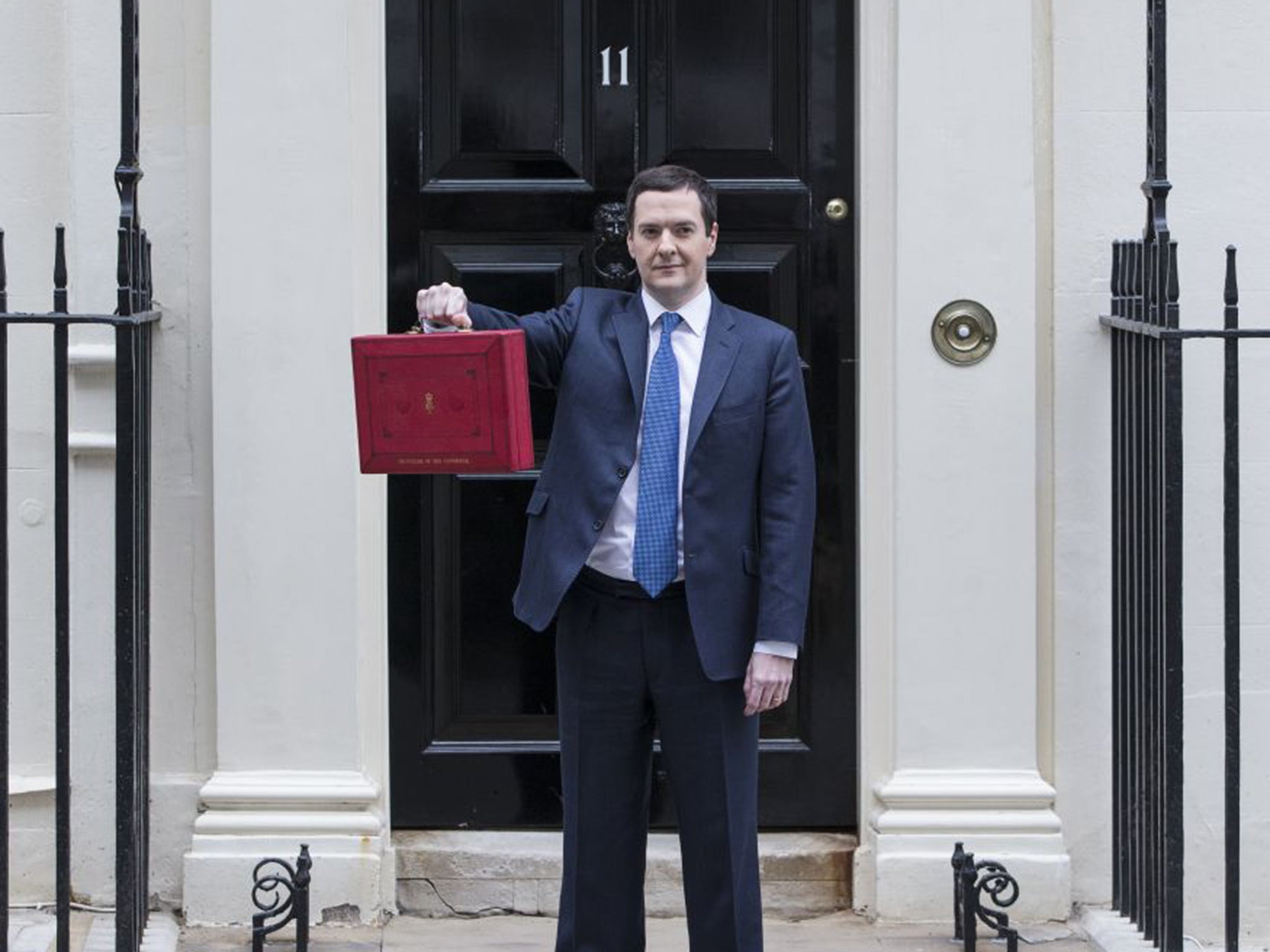From Brexit to Corbynomics via noflation: the words that made 2015 buzz
Richard Northedge charts the neologisms that entered the language of business in a year dominated by Europe, debt and tax avoidance

Your support helps us to tell the story
From reproductive rights to climate change to Big Tech, The Independent is on the ground when the story is developing. Whether it's investigating the financials of Elon Musk's pro-Trump PAC or producing our latest documentary, 'The A Word', which shines a light on the American women fighting for reproductive rights, we know how important it is to parse out the facts from the messaging.
At such a critical moment in US history, we need reporters on the ground. Your donation allows us to keep sending journalists to speak to both sides of the story.
The Independent is trusted by Americans across the entire political spectrum. And unlike many other quality news outlets, we choose not to lock Americans out of our reporting and analysis with paywalls. We believe quality journalism should be available to everyone, paid for by those who can afford it.
Your support makes all the difference.The additions to the financial dictionary tell the story of each year. In 2015, newcomers to the lexicon include National Living Wage, Pensioner Bonds and Super Thursday, when the Bank of England simultaneously publishes its rate decision, MPC minutes and inflation report. Enter, too, “defeat device”, the emissions-cheating chip on VW’s EA189 engine.
But every year, some words fall into disuse: the commodity supercycle and Zimbabwe dollar are history. And some names return to the language: welcome back Lagonda, Marconi and Arthur Andersen, but not, HSBC decided, Midland Bank.
Britain began 2015 with a Zombie Parliament ahead of the general election in which parties pursued Cautious Cathy – the swing voter typified as a 35-year-old Nuneaton mother. Comedian Al Murray stood for the Free United Kingdom Party (FUKP) against Ukip. The Greens leader Natalie Bennett had a brainfade.
Barack Obama called David Cameron Bro and the PM invited staff to a chatterama. Broadcasters threatened to empty-chair him for shunning the TV debates. Ed Balls cited Bill Somebody as his friendly businessman. Ed “Two Kitchens” Miliband declared himself a happy warrior who had weaponised the NHS. He had Milifandom – until he was crushed under the Edstone. But deficit was not in his vocabulary and polling day made him a victim of Fall-out Friday. Out of the dictionary go coalition and the Quad of top Tories and Lib Dems.
Labour in Scotland was dubbed the Red Tories by the SNP, whose MPs became Team 56 after their landslide. Down south, after a Tatler Tory’s RoadTrip helped Blue-Collar Conservatives win the election, the Labour Right formed Red Shift to chase White Van Man while the Left formed Momentum. The Women’s Equality Party was launched.
The Labour leadership selectorate said “Jez we can”. Jeremy Corbin chose Tom Watson as deputy – Tom and Jerry – and threatened to revive Clause 4. Corbynomics begat People’s QE.
MPs voted on Evel – English votes on English laws. Bank of England research on Brexit was codenamed Project Bookend. Vote Leave could lead to Britzerland, a Swiss/UK link. The Greeks voted Ne or Oxi on its bailout and dubbed the IMF a “criminal syndicate”. The Greeks renamed the Troika as “the institutions” and the Germans called Greece’s loan-demands a Trojan Horse before finance minister Yanis Varoufakis gave them a one-finger insult – a Stinkefinger. Greece’s new Movement of Democratic Socialists failed to win power.
In came the Asian Infrastructure Bank, while Belarus, Kazakhstan, Armenia and Kyrgyzstan founded the Eurasian Economic Union.
There was a Great Divergence when the eurozone relaunched QE as the Public Service Purchase Programme. Japan proposed Womanomics to rebalance top jobs. The world coped with loflation and noflation, deeming there to be good deflation and bad. PensionWise advised on how to cash in after Pension Freedom Day.

Iain Duncan Smith rebranded zero-hours contracts as “flexible contracts”. Liberal ministers proposed an Alternative Budget with a yellow box, but George Osborne’s red box contained a Help-to-Buy Isa, Social VCTs and a £1,000 tax-free savings allowance that makes Cash Isas redundant. The chancellor slipped in a Summer budget, codenamed Project Rockie, that included an Innovative Finance Isa for P2P lending, plus Pay-to-stay – higher council rents for higher earners.
“We are the builders” was Osborne’s 2015 catchphrase as he styled the UK as “Comeback country” and reconvened the Committee of the Commissioners for the Reduction of the National Debt, which last met in 1860.
HMRC is hunting ghosts who evade the tax system. Responsible companies can earn a Fair Tax Mark. Luxleaks revealed corporate tax deals with the Grand Duchy, while whistleblowers described bricks of cash moving into black accounts at HSBC’s Swiss bank. The chastened bank exited its Jersey account holders while financier Lord Fink defended “vanilla tax avoidance”.
In business, Reed Elsevier became RELX, BSkyB was shortened to Sky and GDF Suez is now Engie. Morrisons’ Milk for Farmers cost 10p extra but it scrapped its Match & More price-matching and sold 195 convenience stores which were rebranded MyLocal. Co-op Pharmacies were sold and became Well. Littlewoods replaced its catalogues with Shop Direct. Espirito Santa’s UK broking arm is now Besi.
We belatedly learnt that HSBC’s mooted merger with JP Morgan was codenamed Big Game while the Bank of England bailouts tagged Bradford & Bingley as Badger, Alliance & Leicester as Tiger and HBoS as Fox. Lloyds was Lark and RBS Phoenix. RBS called its own restructuring Project Brown.
Lend Lease lost its space to become Lendlease. PTG’s bid for Avon was a hoax but mergers produced Kraft Heinz, Ladbrokes Coral and Paddy Power Betfair (dubbed Betty Power). Pfizer’s Allergan merger was nicknamed Pfizergan. JRP is the marriage of Just Retirement and Partnership. Project Chart is brewer Anheuser Busch’s bid for SABMiller (SAB was Lima). Pigeon (Pearson) sold Falcon (Financial Times) to Nest (Nikkei). Meanwhile, BHP Billiton spun off South 32 and Hewlett Packard split into HP and Hewlett Packard Enterprises.

Yahoo created Aabaco to demerge its stake in China’s Alibaba. Google Ventures is to be GV and the Google parent is now Alphabet – it bought the website Abcdefghijklmnopqrstuvwxyz.com. Google Glass was axed.
Microsoft’s HoloLens headset overlays holograms on to the real world. Project Spartan was that firm’s search for a new Internet Explorer.
RBS is the first global bank allowing Facebook at Work but the charitable Chan Zuckerberg Initiative will own Facebook. Account-number portability is banking’s buzz phrase for keeping your number when changing banks. The MMM social financial network promoted Bitcoin, Goldman Sachs set up SETLcoin and Nasdaq launched Linq for blockchain transactions, while the US proposed a Bit Licence.
Britain secured its first Deferred Prosecution Agreement and regulators compiled a Black Book of City bad apples. Tom Hayes – aka Tommy Chocolate, Rainman or the Machiavelli of Libor – was jailed for rate-fixing but Pete the Greek escaped prosecution. The Hound of Hounslow awaits trial for spoofing stock orders. US prosecutors also introduced us to channel stuffing (inflating sales). Ross Ulbricht – alias Dread Pirate Roberts – was convicted of running Silk Road, the drug-dealers’ website of choice, trapped by a US agent called Cirrus. Silk Road Reloaded started up.
China is building a New Silk Road to revive flagging growth that caused the Shanghai Shock on Black Monday. Beijing’s National Team of state institutions acted to make the “startled birds” fly again.
Excess liquidity is the new issue. Investment banks launched Luminex, a share-trading dark pool, and the Symphony messaging service. CurveGlobal is the London Exchange’s new futures market while 48 UK councils formed Local Capital Finance to issue pooled munibonds.
The City’s unbuilt Helter Skelter office tower, renamed the Pinnacle, is now 22 Bishopsgate, while the Scalpel rises in London’s Gotham City development zone.
St Antony Jenkins lost his halo and the Barclays top job. Boris Johnson’s Barclay Bikes became Santander Cycles but unions blocked the night Tube. First Great Western revived the Great Western Railway brand.
Confusingly, Bank Underground is a new Bank of England staff website. The Bank’s Fair & Effective Markets Review sought an end to banking scandals.
A Dutch central bank supervisor, Conchita van der Waal, was exposed as a dominatrix prostitute. Former IMF chief Dominic Strauss Kahn relied on Dodo the Pimp.
Westminster opposed Russia’s LetterOne buying North Sea oil assets. Surrey’s Gatwick Gusher was smaller than the Supergiant gas field found off Egypt. National Grid invoked its Demand-side Balancing Reserve to curtail industrial supply but the Viking Line will bring Danish electricity to the UK. Or there is Tesla’s Powerall super battery.
New names for 2015 include the Payment Systems Regulator, Transport Focus, London Land Commission, NHS Improvement, Hereford’s New Model Institute for Technology & Engineering and the DisneyLife channel. Operation Stack delays cross-channel trips to The Jungle. Cecil the Lion left the dictionary, but unicorns, young tech firms, entered.
There was plenty of renaming: hello Highways England (the old Highways Agency), Pensions & Lifetime Savings Association (NAPF, as was) plus the National Police Chiefs’ Council (formerly Acpo). D-Notices are now Security Advisory Notices. Commemorating its foundation, Standard Life’s financial wing is now 1825 while The Economist’s Intelligent Life magazine becomes 1843.
Many phrases enter the popular dictionary each year – selfie-sticks, native advertising, Middle East Respiratory Syndrome, the Gigantomo 3lb tomato and massive Kaowe AK6 diamond – but some disappear. The Wilson Doctrine doesn’t bar the security services from bugging MPs’ phones, said judges. Thomson, FirstChoice and Malaysian Airlines are going. Asda tried and failed to kill Black Friday. New owners dropped Blinkbox, Coutts International and the Weve mobile phone venture. America’s Prudential now prefers PGIM to Pramerica.
Out too went Page 3, Loaded, Zoo and FHM. And goodbye to Kids Company, the Green Deal, Class 2 National Insurance, tax returns and tax credits. The dictionary records our changing life.
Join our commenting forum
Join thought-provoking conversations, follow other Independent readers and see their replies
Comments